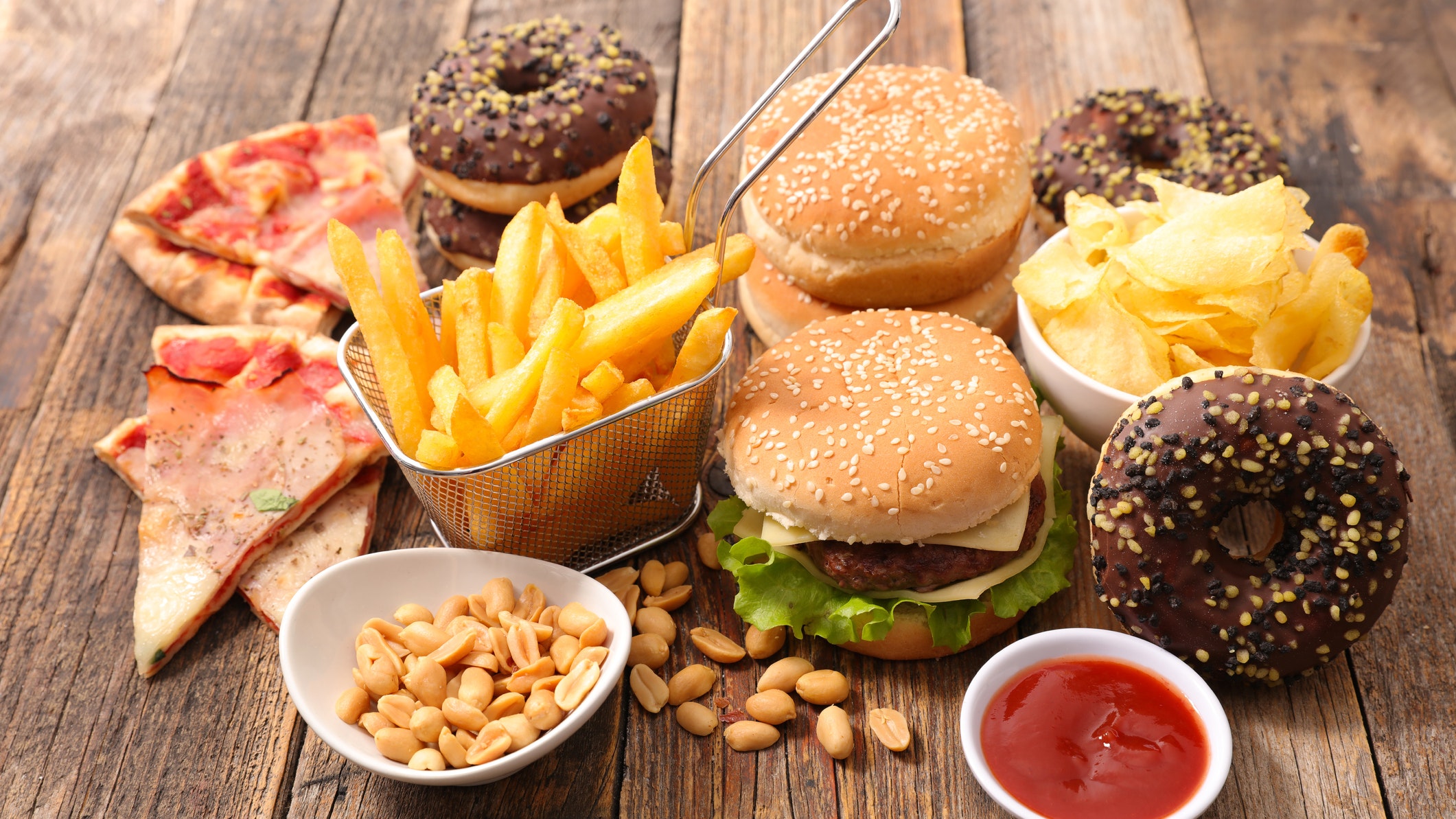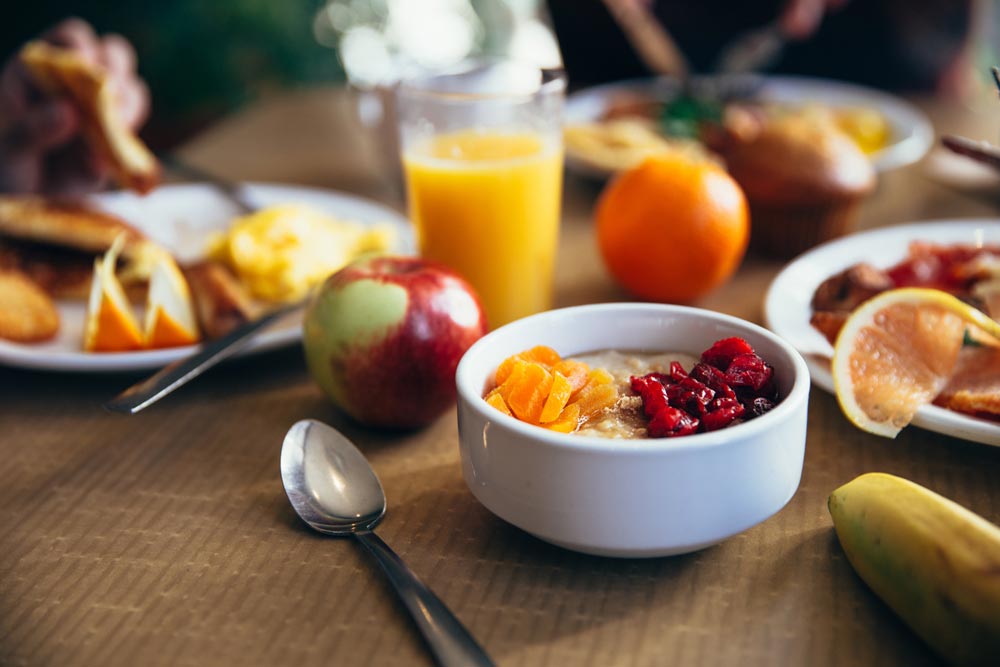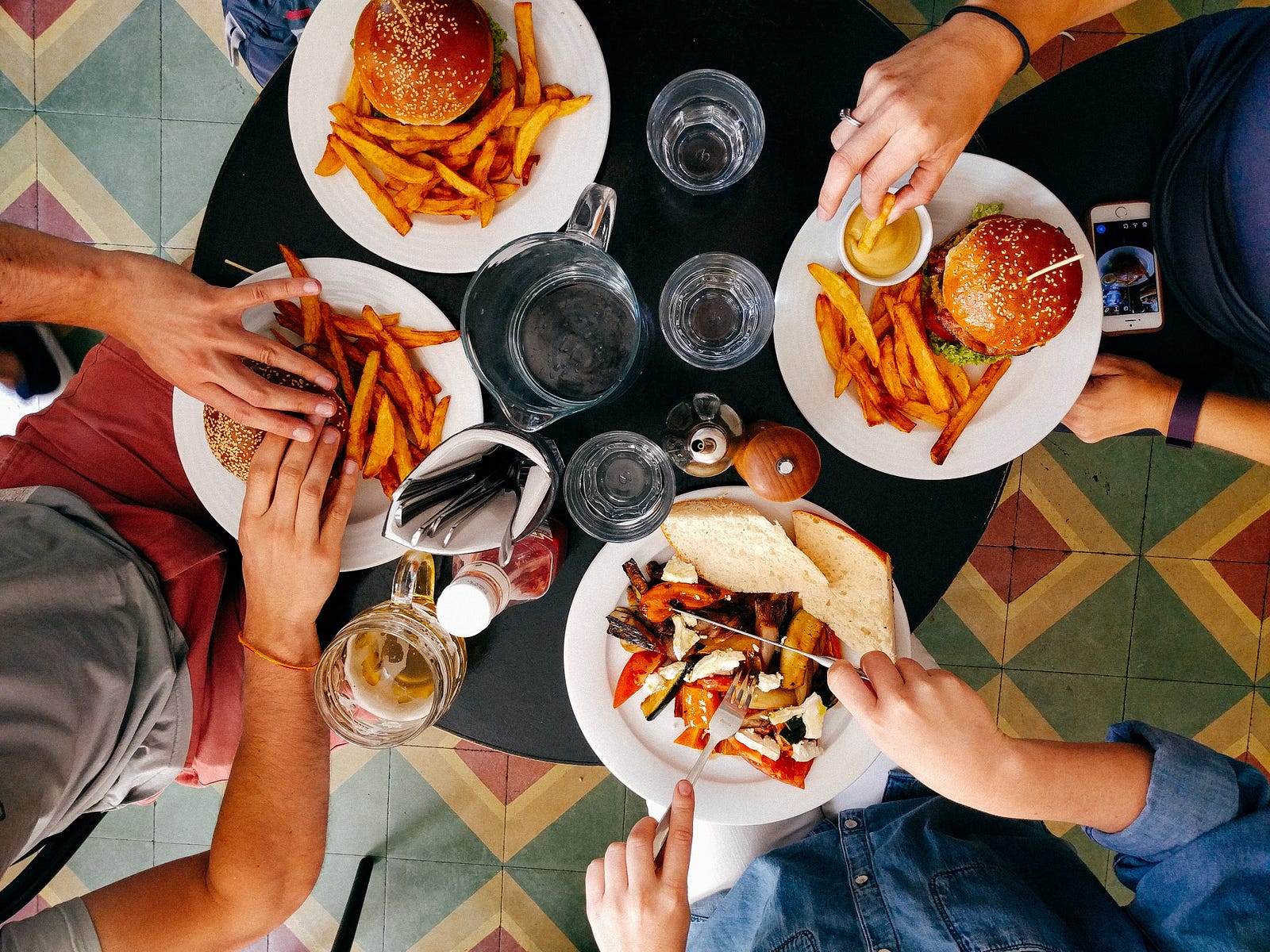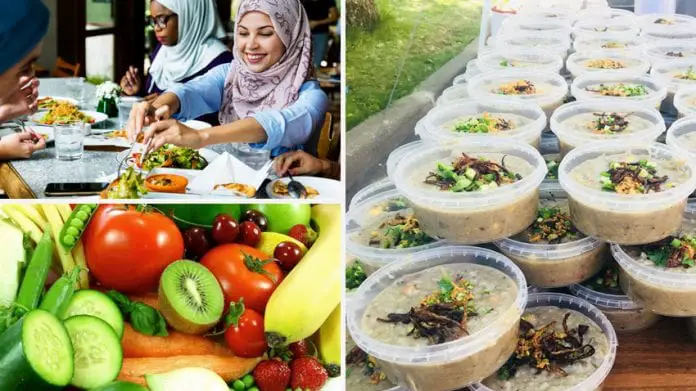This year’s holy month of Ramadan falls in early May, and it is important to mind ourselves on food and beverage consumptions during sahur and iftar. This is especially true for the Muslims who are required to fast over the course of the Ramadan month. Here are 8 Tips For Healthy Eating During Ramadan.
1) Water Matters
Given the fact that the one-month fasting period averages at 13 hours a day, it is important to stay hydrated between sahur and iftar. And the best drink to help replenish your lost fluid is opting for a glass of plain water. The general rule of thumb, of course, is trying to maintain at least 8 glasses of water.

2) Even Food With High Water Content Helps
A glass of water is too plain for you? You can jazz up your otherwise tasteless water with a slice of lemon. Alternatively, make it a habit to incorporate some of these fruits and vegetables into your daily diet upon breaking fast. These include cucumbers, watermelons, lettuces and oranges.

3) Avoid Or Reduce The Consumption Of Junk Or Processed Food
We get it: processed food like cakes, cookies and ready-made meals sold in the grocery stores and supermarkets are usually appetising and irresistible. The same also goes to fast foods such as burgers, fried chicken and fries. They are all delicious but also happen to be notoriously high in fat. It’s not like you can’t enjoy them but it’s best to practise moderation, particularly if you want to develop a healthy eating habit during the Ramadan month.

4) Choose Your Meal Wisely During Sahur
Sahur, which occurs during the time when you consume your meal before dawn, happens to be the most important meal during Ramadan, being equivalent to having breakfast in the morning. That means it is vital to pick a well-balanced meal to fuel your body with enough nutrients until the breaking of fast (iftar) in the evening.
So, instead of filling your tummy with roti canai or nasi lemak, consider having carbohydrate-rich foods like oats, grains and wheat to help regulate your blood sugar level as well as making you feel full for an extended period of time.
Other types of food that are best eaten during sahur are high-fibre food like bananas, whole grain toasts and muesli. Also, consider adding protein-rich meal like scrambled eggs, yogurt (preferably Greek yogurt) and bran flakes.

5) Breaking The Fast With Bubur Lambuk Or Soups
After a long day of fasting, it is wise not to overcome your hunger pangs immediately with a heavy meal. Start small by replenishing your lost energy with a hearty bowl of bubur lambuk — a well-known spiced porridge dish commonly eaten during iftar.

Another good alternative would be soup since they are usually easy on the stomach. Not to mention that soups are easy to make and versatile enough that allows you to mix whatever necessary ingredients into the pot. This can be anything from herbs to vegetables, or even chicken and beef!

6) Mind Your Caffeine
Let’s face it, most of us can’t last the day without a cup of hot coffee. This is especially true during breakfast, depending on coffee to shake us awake. While there’s nothing wrong with consuming coffee or other caffeinated beverages, it is best to drink them in moderation. Besides, caffeine happens to be a diuretic, which in turn easily contributes to dehydration.

7) Never Neglect Sahur
If you often develop a bad habit of skipping breakfast, various side effects would naturally occur. This includes depriving your body of essential nutrients, affecting your overall blood sugar levels, developing unhealthy cravings and causing mood swings. The same thing also goes to sahur. You can imagine the effect of skipping sahur and having to endure long hours of fasting before you are able to consume your next meal during iftar.

8) Overeating Is Never A Good Idea During Iftar
It is understandable that the more we need to endure a long day without eating, the higher the chance we would sink into an unnecessary overindulgence of food cravings. But doing so would cause your body more harm than good, namely bloating as well as stomachache and indigestion. Instead, start slow (read No. 5) or have a few dates before really digging in. Dates are a good choice since they contain an excellent source of energy that is vital for your body.

https://www.facebook.com/tallypressmy/















